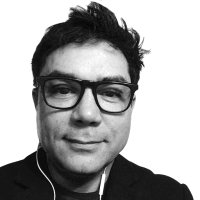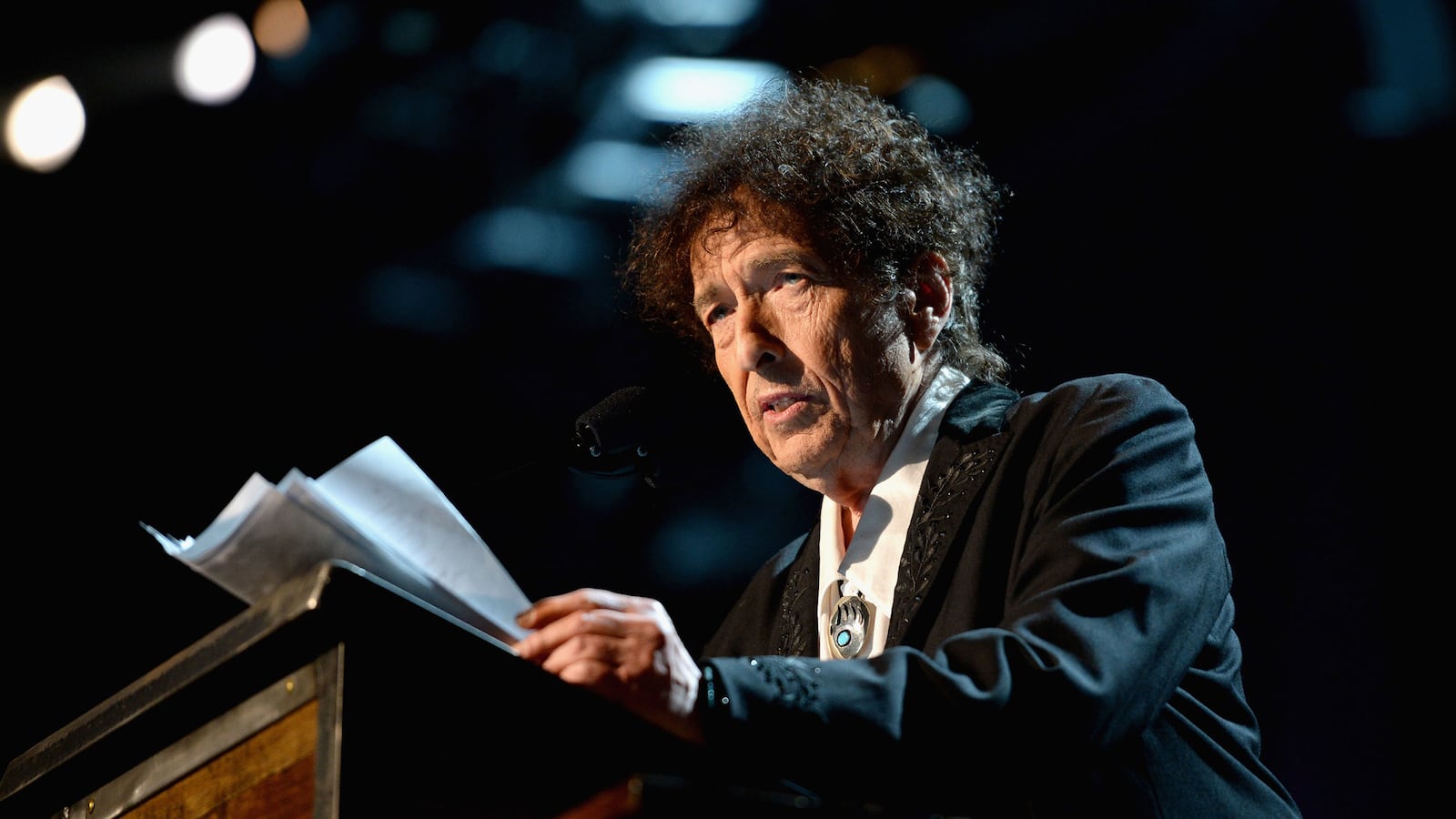The Nobel Prize in Literature committee has had a rough few months—absorbing sharp criticism over its choice of Bob Dylan, which was aggravated by Dylan’s seeming indifference and ultimate refusal to attend the ceremony.
In a brief speech that was read at the Nobel Banquet on Saturday, Dylan said, essentially, that he was too involved with his music to accept the award in person. He said that Shakespeare wrote for the stage not the page, and would have found the question of whether his work was literature absurd—he was too busy finding the right actors, rehearsing the plays and financing the performances.
“Like Shakespeare, I too am often occupied with the pursuit of my creative endeavors and dealing with all aspects of life's mundane matters. ‘Who are the best musicians for these songs?’ ‘Am I recording in the right studio?’ ‘Is this song in the right key?’ Some things never change, even in 400 years.
“Not once have I ever had the time to ask myself, ‘Are my songs literature?’”
So it was left to the Swedish Academy’s literary historian Horace Engdahl to defend the committee’s decision. In a forceful, biting, and often lyrical response to the academy’s recent critics, Engdahl doubled down on Dylan, saying his work represents a revolutionary disruption of what great literature is—and can be.
“He gave back to the language of poetry its elevated style, lost since the Romantics,” Engdahl said in a speech introducing Dylan’s award. “Not to sing of eternities, but to speak of what was happening around us. As if the oracle of Delphi were reading the evening news. Recognizing that revolution by awarding Bob Dylan the Nobel Prize was a decision that seemed daring only beforehand and already seems obvious.”
In the face of claims that Dylan was a cheap choice for such a hallowed honor, Engdahl hailed the Minnesota-born songwriter for beating the smart set at its own game—taking an idiom discarded ages ago by the cultural intelligentsia and changing the world with it.
“What brings about the great shifts in the world of literature? Often it is when someone seizes upon a simple, overlooked form, discounted as art in the higher sense, and makes it mutate. Thus, at one point, emerged the modern novel from anecdote and letter, thus arose drama in a new age from high jinx on planks placed on barrels in a marketplace, thus songs in the vernacular dethroned learned Latin poetry…Each time this occurs, our idea of literature changes.”
Engdahl called Dylan’s rhyming “an alchemical substance that dissolves contexts to create new ones…fusing the languages of the street and the Bible” into songs that beside which “much of the bookish poetry in our world felt anemic.
“The routine song lyrics his colleagues continued to write were like old-fashioned gunpowder following the invention of dynamite.”
Engdahl said that Dylan deserved the award for panning “poetry gold” out of the scope of human experience, creating a mosaic of lyrical gems “from what he discovered in heirloom and scrap, in banal rhyme and quick wit, in curses and pious prayers, sweet nothings and crude jokes.”
“By means of his oeuvre, Bob Dylan has changed our idea of what poetry can be and how it can work. He is a singer worthy of a place beside the Greeks, beside Ovid, beside the Romantic visionaries, beside the kings and queens of the Blues, beside the forgotten masters of brilliant standards.”
Returning his attention to the academy’s Dylan detractors, Engdahl bid a gleeful farewell to the old order of things.
“If people in the literary world groan, one must remind them that the gods don't write, they dance and they sing.”





